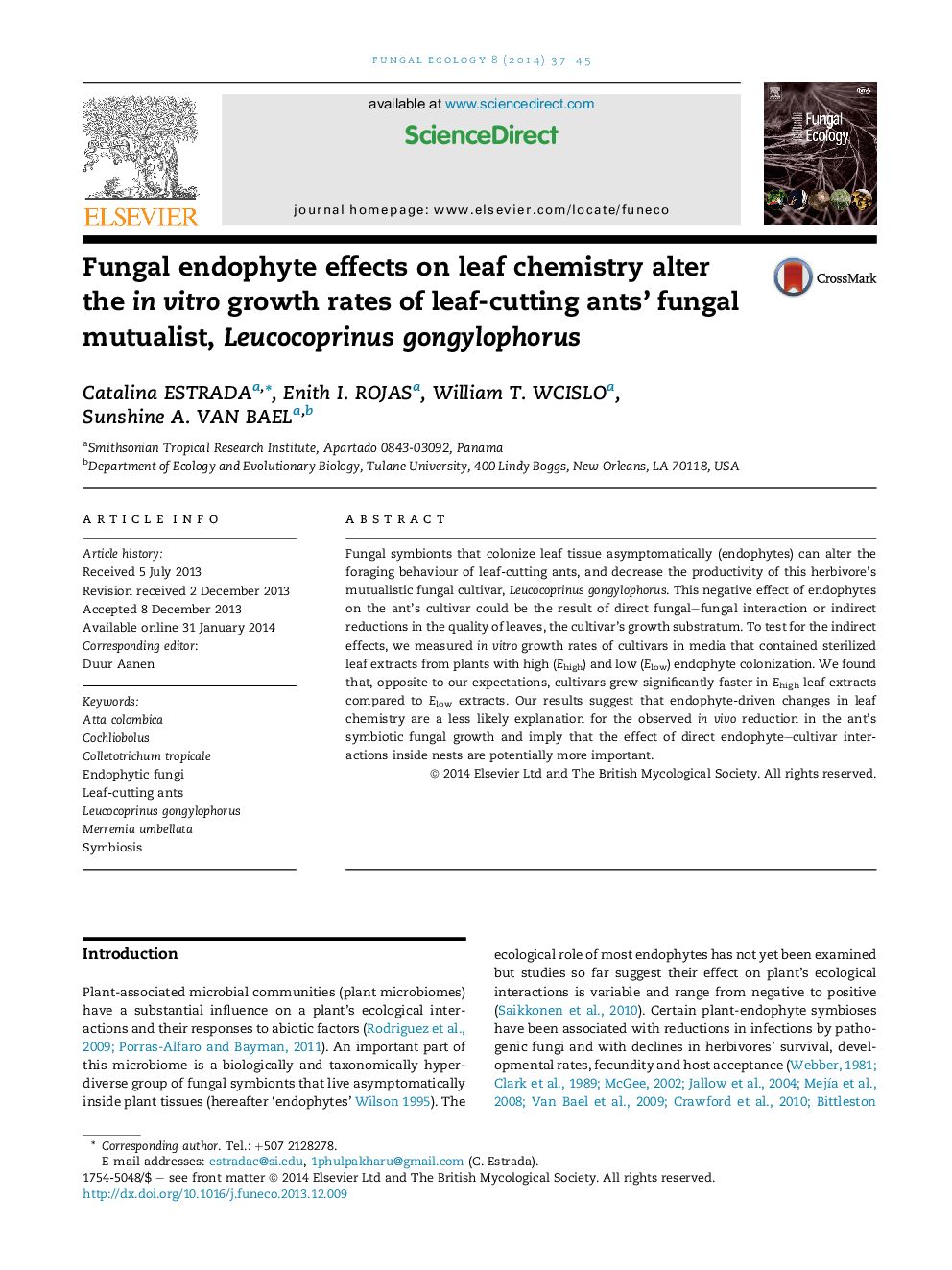| Article ID | Journal | Published Year | Pages | File Type |
|---|---|---|---|---|
| 8384710 | Fungal Ecology | 2014 | 9 Pages |
Abstract
Fungal symbionts that colonize leaf tissue asymptomatically (endophytes) can alter the foraging behaviour of leaf-cutting ants, and decrease the productivity of this herbivore's mutualistic fungal cultivar, Leucocoprinus gongylophorus. This negative effect of endophytes on the ant's cultivar could be the result of direct fungal-fungal interaction or indirect reductions in the quality of leaves, the cultivar's growth substratum. To test for the indirect effects, we measured in vitro growth rates of cultivars in media that contained sterilized leaf extracts from plants with high (Ehigh) and low (Elow) endophyte colonization. We found that, opposite to our expectations, cultivars grew significantly faster in Ehigh leaf extracts compared to Elow extracts. Our results suggest that endophyte-driven changes in leaf chemistry are a less likely explanation for the observed in vivo reduction in the ant's symbiotic fungal growth and imply that the effect of direct endophyte-cultivar interactions inside nests are potentially more important.
Related Topics
Life Sciences
Agricultural and Biological Sciences
Ecology, Evolution, Behavior and Systematics
Authors
Catalina Estrada, Enith I. Rojas, William T. Wcislo, Sunshine A. Van Bael,
